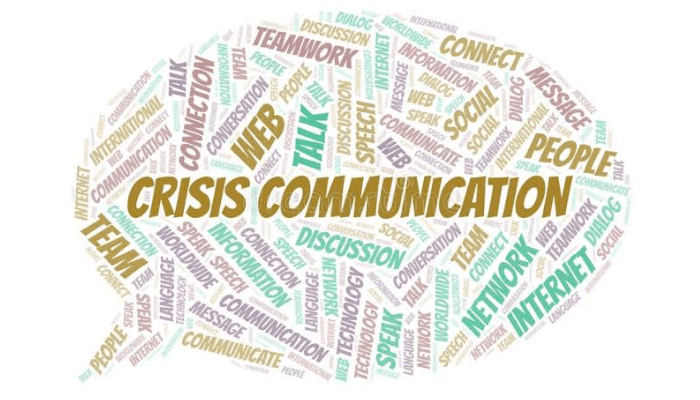The Israel-Palestine-Hamas conflict remains one of the most complex and enduring disputes in modern history. It is deeply rooted in centuries of territorial, political, and religious disagreements. While the origins date back to ancient times, its modern dimensions emerged during the 20th century due to competing national movements and the fallout from colonial policies. This conflict is not merely a local or regional issue but one with profound global implications, influencing international relations, shaping geopolitical strategies, and stirring intense emotions across continents. Central themes include the contentious debates over land, sovereignty, and the fundamental rights of those affected by the conflict.
“Fundamental issues such as military occupation, economic blockades, and widespread humanitarian crises frequently remain unresolved, perpetuating the cycle of violence.”
The most recent escalation of violence, which began on October 7, 2023, has once again underscored the conflict’s immense human and material cost. Over the past 15 months, at least 46,707 people in Gaza have been killed, including approximately 18,000 children. Many analysts and rights groups suggest the actual death toll may be even higher. Beyond the loss of life, the conflict has displaced more than a million people in Gaza, leaving the region’s infrastructure in ruins. Centuries of cultural and historical heritage have been destroyed, further eroding the identity of affected communities and diminishing the global cultural landscape.
The ceasefire agreement
Amid this backdrop, a ceasefire agreement between Israel and Hamas has provided a momentary pause in hostilities. Under this agreement, Hamas released 33 Israeli hostages, including women, elderly individuals, and two children from the Bibas family. In exchange, Israel has freed hundreds of Palestinian prisoners, including those serving life sentences. The initial phase of the deal also includes Israel’s partial withdrawal of forces from the Netzarim corridor in Gaza while maintaining a security buffer zone along Gaza’s perimeter. This agreement, though fragile, marks the first significant pause in fighting since November 2023.
The second phase of the ceasefire agreement, set to begin 16 days after its initial implementation, involves the release of remaining Israeli male hostages and captured soldiers. During this phase, Israel plans to redeploy its forces along Gaza’s border with Egypt, specifically in the Philadelphi corridor, while evacuating the Rafah Crossing. These steps represent a strategic shift, as maintaining control over these areas has been a cornerstone of Israeli national security policy. However, the long-term success of this agreement remains uncertain. Any failure to meet the terms of the ceasefire or renewed hostilities could quickly unravel these fragile arrangements.
Despite the temporary relief the ceasefire provides, such agreements often fail to address the root causes of violence. Fundamental issues such as military occupation, economic blockades, and widespread humanitarian crises frequently remain unresolved, perpetuating the cycle of violence. Both parties must take genuine steps to address these systemic issues to move toward sustainable peace.
Read also: Timeline for Israel-Hamas 84 days ceasefire agreement
Lessons learnt
Several lessons can be drawn from this ongoing conflict for Nigeria. One key takeaway is the importance of military strength and technological advancement. Israel’s Iron Dome missile defence system, which intercepted over 90% of incoming rockets during the conflict, underscores the strategic advantage of investing in self-reliant defence systems. Nigeria must move beyond rhetorical proclamations of strength and focus on tangible investments in defence capabilities to secure its sovereignty and influence global affairs effectively.
Strategic alliances also play a vital role in shaping the dynamics of conflicts. Israel’s close relationships with allies such as the United States and the United Kingdom provided it with significant resources and diplomatic leverage. In contrast, Palestine has relied on allies like Iran, Lebanon, and Syria. These alliances supply material support and shape international narratives and outcomes. For instance, the U.S. has frequently used its veto power in the UN Security Council to block resolutions critical of Israel. Nigeria must prioritise building and maintaining strategic partnerships to navigate the complexities of global geopolitics.
Balancing domestic and international priorities is another important lesson. Domestic political pressures, including public demand for security, influenced Israel’s military escalation. Nigerian leaders must strengthen the relationship between public opinion, public demands, and policymaking to ensure their actions align with long-term national interests.
History demonstrates that all conflicts ultimately end through negotiation. Diplomacy and dialogue should be prioritised over warfare as the primary means of resolving disputes. The human and economic costs of war are too significant to ignore. With Nigeria facing challenges such as insurgency, banditry, and calls for secession, the importance of negotiations and dialogue as tools for conflict resolution cannot be overstated.
Window for broader peace
The recent ceasefire in the Middle East, fragile as it is, opens a window for broader peace initiatives, including the potential revival of the Abraham Accord. This development could usher in a new era of economic growth and regional cooperation driven by Saudi capital and Israeli technology.
The Israel-Palestine conflict serves as a stark reminder of the challenges in achieving lasting peace in deeply divided societies. The global community has a moral and strategic responsibility to promote dialogue, ensure accountability, and support efforts toward lasting peace. These lessons are not confined to the Middle East but apply to all regions grappling with similar challenges. By prioritising peace, humanity can work toward a brighter, more equitable future for all.
Join BusinessDay whatsapp Channel, to stay up to date
Open In Whatsapp





